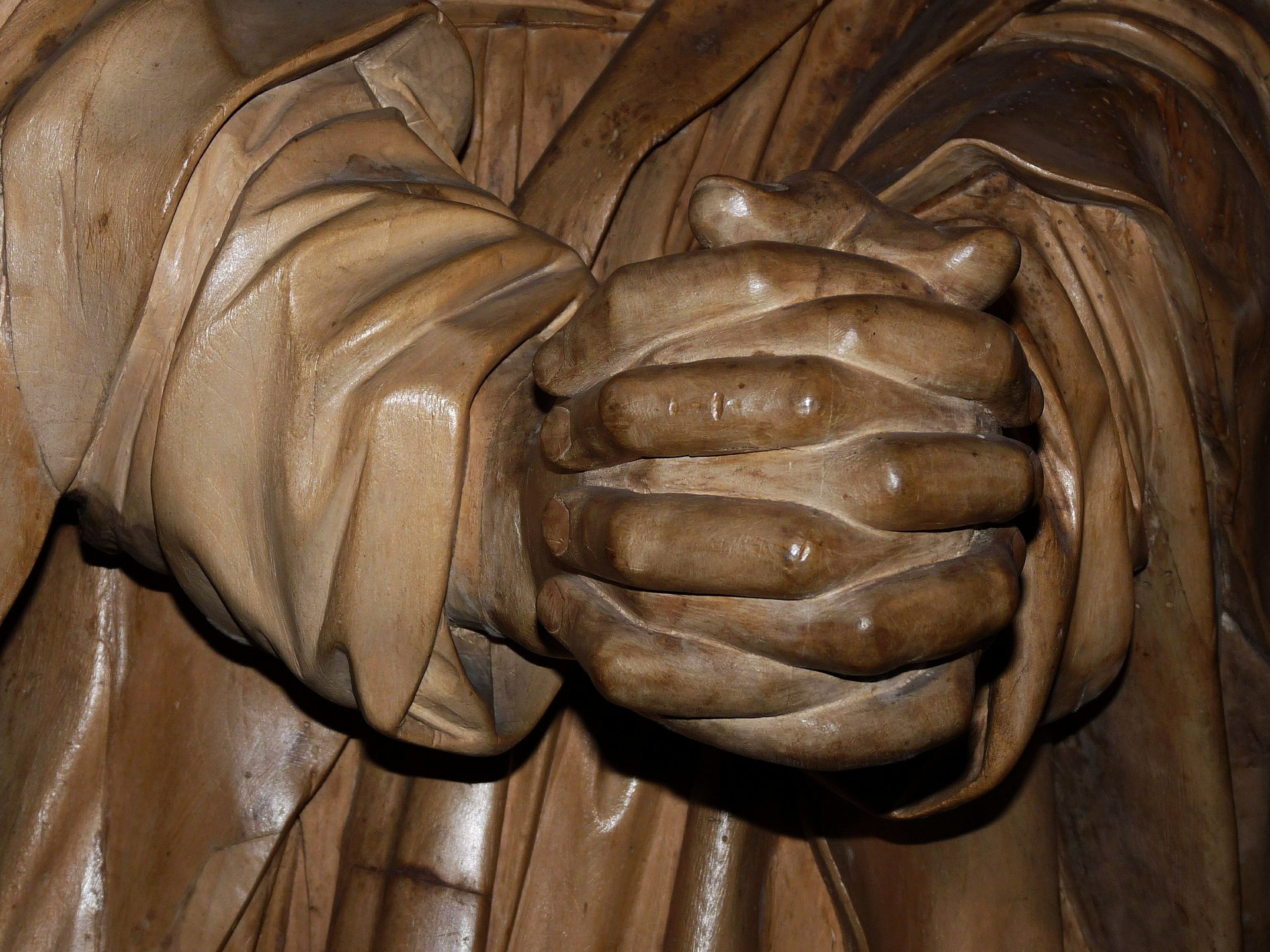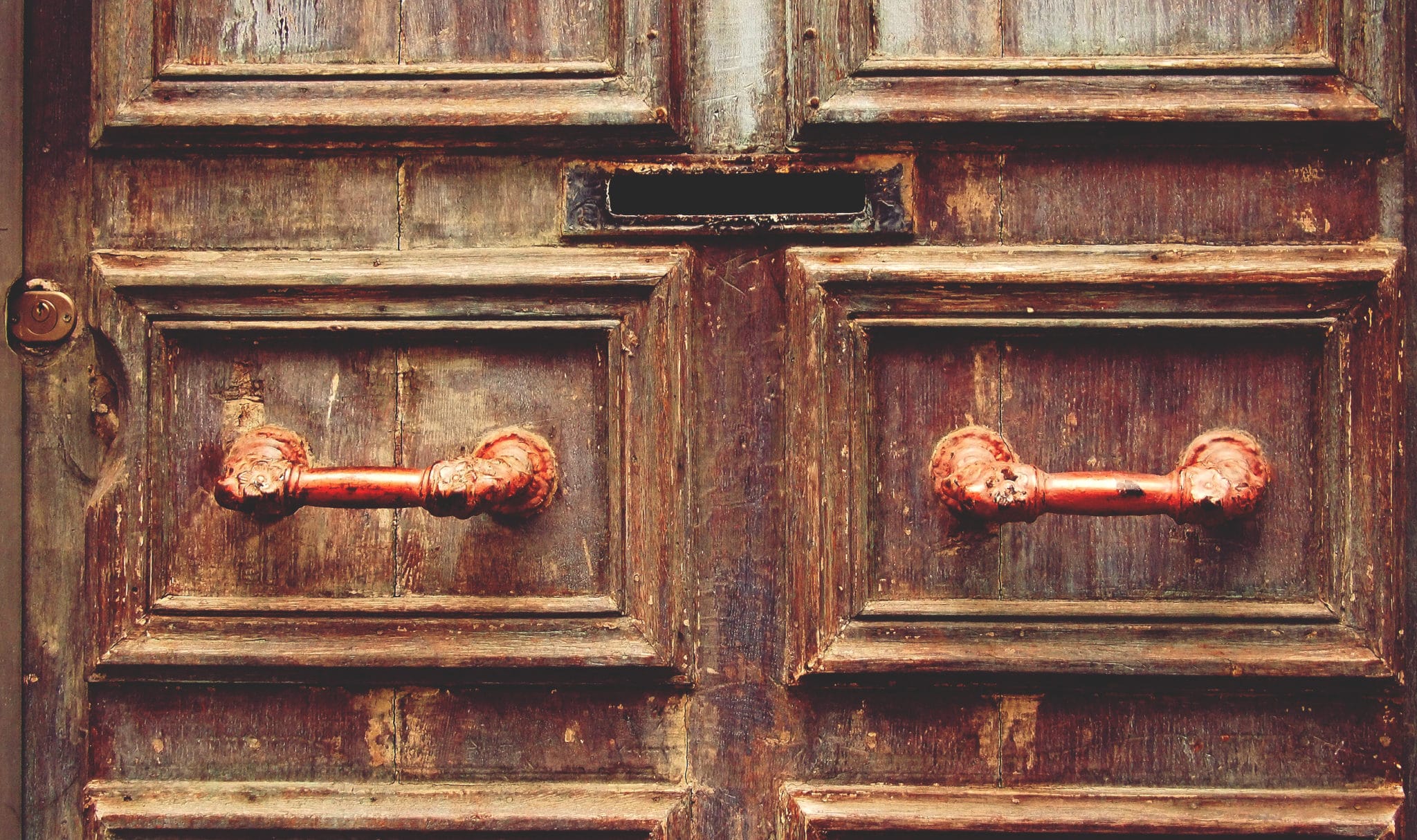Dear [name redacted],
Let me begin with my feelings of appreciation for your letters (of Feb. 8th, March 8th and June 2nd). I am humbled and touched by your remarks regarding the book Toward A Meaningful Life, which I had the privilege of adapting from my great teacher’s works. Without even entering into a discussion of the presenting issues, the mere fact that this book provoked your thoughtful remarks and opened up a communication between our two “worlds,” is in itself a meaningful achievement.
If I understand you correctly, your struggle lies, in essence, in one all-encompassing dilemma or paradox. Namely: how can I suggest the reconciliation of a deterministic world of nature and the indeterminacy inherent in man’s free will, or in other words: the reconciliation of reason and faith? You see them as mutually exclusive, and even if they are both valid perspectives, they remain separated by an absolute divide.
To allow for a meaningful discussion, I would like to dissect the issues into separate items, which can then be reviewed point by point.
Every discourse needs to assume one or more axioms. In your letter it was unclear to me what points you are ready to accept (or at least concede). So, without assuming anything, allow me to build this from scratch.
Question number one: Do we accept that there are two legitimate and valid realms (albeit, at this point, mutually exclusive ones) – reason and faith, determinacy and indeterminacy (allowing for free will)? I’ll assume that we don’t accept this, thus the need to backtrack:
Do we accept the existence of G-d? And if yes, what type of G-d? You “grant the existence of G-d as a possibility,” but your “own faith is much more mundane, gleaned from admittedly finite experience and lodged finally in the concept of a unified deterministic universe; a universe which, for all practical purposes, operates without intent.” (In your updated version you write: “I believe that that the existence of both G-d and/or chaos are possible, my own faith, when I cannot keep it at bay leans more towards a deterministically unified existence…which operates like a machine”). My question to you then is: what kind of G-d would create a mechanical universe operating without intent? What need is there for G-d and what does a G-d contribute to a universe that functions like a wristwatch? You must be suggesting a G-d-engineer that basically set the wristwatch in motion, a G-d, as you put it, who is at best “a semantic question.”
May I offer another definition of G-d and existence. Our existence does not have to be. It came to be — created by G-d. G-d implies design and purpose. No engineer would create a machine — no matter how organized — for no purpose. Organization is not an end in itself. Design implies not just a systematic machine, but purpose; a raison d’être. We need to understand why the cosmic engineer created this organized, deterministic universe. It is insufficient to say that He created it just in order to demonstrate His grand power of design. G-d created this deterministic universe in order to accomplish some objective. A universe without purpose may as well not have a G-d; G-d then is only semantic.
I believe that you may have a problem with the notion of existence being created by a G-d. You would rather prefer defining existence (the universe) as one with no beginning and end, and G-d being the designer that wound up this wristwatch. However, my definition of G-d includes the possibility that our existence has a beginning — it is just a “tip of the iceberg” of reality, a part of a much greater whole, and this “whole” informs the “part” of its unique design and purpose, its reason for being.
What is G-d’s purpose in creation? That we humans contribute — as partners with G-d — in transforming our lives and the entire universe and reuniting its material side with its spiritual side, creating one integrated universe — as a G-dly place. G-d created grain seeds; humans plant the seeds, harvest the wheat, mix the flour with water and bake bread. We tap the infinite resources G-d instilled in this universe, and actualize their great potential by civilizing and refining the world in which we live.
In order for our lives to have any meaning and significance, we must have the ability to choose (with free will) whether or not to utilize our resources constructively.
You suggest that perhaps the meaning of life is to gain pleasure. However, this leads us back to our understanding of G-d. If G-d would be even half as sophisticated as a great writer, He would have greater intentions in creating a universe than just for pleasure.
But now we must address your question. You write “an inferential analysis of common experience suggests that existence is One (one universe under G-d…). If this is true, then free will is an illusion… for while we obviously can do as we please, we cannot exist apart from the laws of the universe and must be not only guided, but forced by them. That man alone should be granted the reprieve from physical law required by a doctrine of truly free will seems to me ludicrously anthrocentric, appropriate only for a superstitious and primitive people.” So, how do we reconcile the divine design of the universe and free will?
The answer goes back to how we interpret G-d. Is G-d Himself bound by the deterministic laws of the universe that He created? The answer is no. G-d transcends these laws, or better put, G-d could have created entirely different laws or no laws at all. Your questions are valid only in a world of our deterministic logic where everything is governed by deterministic laws and we have no reason to say that man is different. However, this is only from a human perspective that in itself is bound by laws. From G-d’s perspective, which is not bound by any of these laws, there always remains an element of indeterminism, and He chose to infuse a glimmer of this indeterminism into our existence by granting free will to man who G-d created in His own “image.” In other words, an indeterminate G-d (undefined even by the word “indeterminate” and “undefined”) chose to create a deterministic system, and bestow man with free will to transcend the determinism of nature and choose to lift the universe to a higher place than it could ever achieve on its own.
This presents an interesting paradox: since G-d is not bound by any laws and impositions, therefore when He chooses to create a deterministic universe, it become absolutely deterministic; because G-d did not have to do so, once he chooses to do so, the determinism is much more air-tight than if G-d Himself was deterministic and simply acting according to His “nature.” On the other hand, there always remains an element of indeterminism, because even after G-d created the universe, G-d still remains G-d. And this indeterminism is reflected in the universe, in the inherent uncertainty that exists on a quantum level, which is also beginning to be understood by scientists as having effects on our macroscopic universe.
I believe that as scientists discover more of the underlying unity in the universe, they may also come to discover, that the ultimate unity (the so-called “unified field theory”) can only be understood by including the “observer” — mankind — into the equation, and recognizing that this “observer” is no objective “observer” at all, but man’s moral behavior, resulting from exercising his indeterministic free will, has an impact on the universe.
By now you see that the issues you raise are all related to our definition of G-d. For more discussion on my description of G-d (being neither deterministic or indeterminstic) as opposed to other descriptions, please read the chapters “G-d” and “Unity” in Toward A Meaningful Life. I also have tapes of my classes on the topic of free will and determinism, where I discuss this issue at length. Should you be interested in them please contact my office at wisdomreb@meaningfullife.com.
Finally you ask me how did I come to my beliefs? Before I answer that I would like to take note with the final line of your last letter describing me as “Orthodox” and yourself as “Agnostic.” True faith, as I understand and experience it, is not some cop-out or crutch. Faith does not preclude doubts, questions and agnosticism, nor does it deny the paradoxes of life, of reconciling a good G-d with the pain of good people and the prosperity of the wicked, and other such contradictions. Faith is an all-encompassing experience that includes faith in logic, and respects all the realities of our common and empirical experiences. But it does not stop there; it also includes awareness of our sublime experiences, our feelings and intuitions, even our subconscious and beyond (or: within), regardless of whether or not we are comfortable with the consequences.
If you wish, I too can present a compelling argument for agnosticism. After all, G-d created an agnostic universe (as I discuss in the chapter on “G-d”). However my honesty and integrity dictate that I not allow myself to be trapped in my mind. Yes, my mind — as all minds — can explain the impossibility of proving whether or not G-d exists, whether we have free will, or, for that matter, whether we matter at all. But if I want to live life to its fullest, to experience a life that is not just relegated to my mind, and not just locked by my logic, but one that includes my feelings, all my innermost resources, a full-blooming life of love and intimacy, I must include faith in the equation. Not some blind faith in the unknown, but a deep sense of a greater presence, of a higher “It-ness.” Only logic and faith allow us to be most complete — to experience it all, not just part of it.
I have come to my beliefs in many ways. By process of elimination. By intuition. Through logic. And perhaps more than all, through love. That all-embracing feeling that also has no logical explanation, and yet it exists as the most powerful force in life. All these processes have helped eliminate some of the obstacles that obfuscated my inner voice and allowed the natural knowing of my soul to emerge. After taking into account everything I know and feel, I firmly believe that we are all people of faith (read: people who have an intimate relationship with G-d), which becomes increasingly obscured as we grow into “adults” with minds that help us obfuscate our inner voices and become ever more comfortable with the “here and now.”
[Name redacted], let me add this on a personal note. Faith, like any of our resources, needs to continuously be nourished. Indeed, if our bodies continuously need food for sustenance, how much more so does our faith — which can be so elusive — need “food.” The “food” that nourishes faith are the “mitzvot” — living our daily lives and behaving according to the divine laws of the Torah. Putting on tefillin, keeping the Sabbath, eating kosher food, study, prayer and charity. Though we may not fully understand the dynamic, these deeds are all different “vitamins” and “minerals” that feed and nourish our soul, our faith. They instill us with confidence in our inner voice, and allow it to be channeled into our conscious, material, “faithless” life. Faith is a continuous struggle, paralleling and reflecting the struggle of life itself. How often is our faith tested, how often does it waiver? However this struggle is our greatest challenge and gift: Will I rise to the occasion and allow my faith to fill me with passion, to lift me to the greatest heights in impacting this world in a G-dly way, or resign myself — as so many have — to the mediocrity of a meaningless existence, where my greatest passion is in the temporary and the mercurial?
G-d’s question to Adam, “Where are you?” is an eternal question asked of us all. It is a spiritual query not a spatial one: “Where are you” — what are you doing with your life? Where do you stand? Are you recognizable as one created in the Divine image?
I invite your response to this letter and any further dialogue. As you suggest, perhaps our discussion can be of assistance to others as well. Feel free to share these thoughts with anyone you choose.
All the best,
Simon Jacobson







